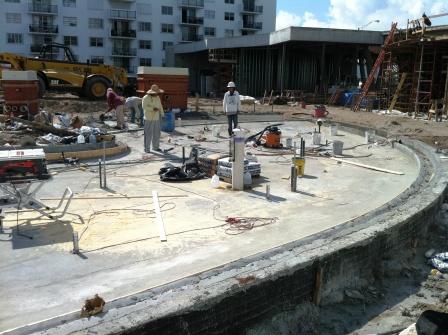BLOG
Before commencing a new project or improvement to an association’s property, it is essential for community association board members to review and follow the procedures which are required. Florida statutes restrict the ability of board members to authorize certain alterations to their community’s property. For instance, the applicable statutes provide that condominium board members in Florida cannot effectuate material alterations to the common elements without the approval of 75 percent of the voting interests, unless otherwise provided in the association’s governing documents.
Condominium associations in Florida have been required to obtain unit owner votes for improvements as minor as painting the bottom section of columns in a garage in order to make them more visible to the drivers. Other precedential examples of “material alterations” requiring unit owner votes have included the redecorating of common-element facilities, painting the exterior of buildings, and changes to roofs or pool-deck flooring.
The governing documents for most community associations will contain provisions addressing how to proceed with making alterations. Some documents may provide that the association’s board alone is authorized to proceed with making the alteration. Others may set monetary limits as to alterations that may be effectuated by board vote alone, and some require a unit owner vote but at a lower approval percentage than what is statutorily required.
 However, in certain situations, material alterations have been permitted without unit owner votes, such as alterations which are required to protect the safety of residents. In such example, a condominium was permitted to have a fence installed in order to protect against a high volume of documented criminal activity. Material alterations have also been permitted without unit owner votes to provide for the installations of “better systems.” For example, a condominium association was allowed to install a new pool deck surface because it was heralded as being a more economical system to maintain and repair, and it would make repairs to underlying common-element components more affordable and practical.
However, in certain situations, material alterations have been permitted without unit owner votes, such as alterations which are required to protect the safety of residents. In such example, a condominium was permitted to have a fence installed in order to protect against a high volume of documented criminal activity. Material alterations have also been permitted without unit owner votes to provide for the installations of “better systems.” For example, a condominium association was allowed to install a new pool deck surface because it was heralded as being a more economical system to maintain and repair, and it would make repairs to underlying common-element components more affordable and practical.
To a great extent the restrictions pertaining to material alterations do not apply to homeowner associations, given that the Florida Statutes governing HOAs do not contain these same types of restrictions. However, some homeowner association governing documents do contain restrictions to alterations of common areas and association property.
Community association boards should consult with legal counsel to ascertain the extent to which they are required to obtain a vote of the owners with regard to a project, and if so, whether any recognized exceptions exist. This will help them to avoid the consequences of not getting the required vote, which may include having to get the vote and/or revert the alterations to their pre-alteration condition if the vote is not obtained.

